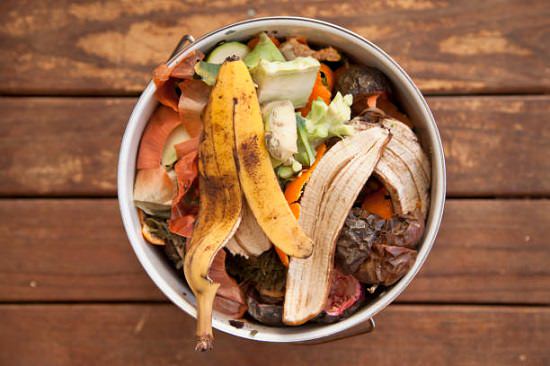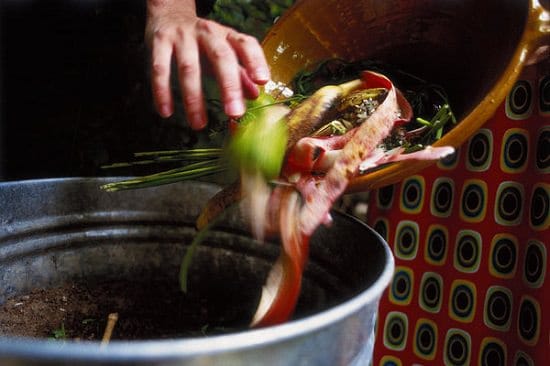If you’re already growing edible plants in your limited space–Composting in an Apartment Balcony can be the next important step towards your urban self-sufficiency.
You must be generating enough food waste and leftovers every day that you can utilize to make your own compost. You can use it to feed your plants–the best organic fertilizer. And on your balcony, you don’t have to worry about rodents and other pesky animals getting into your compost, other than your pets.
Also Read: Best Composting Tips
If you believe composting is a messy job that produces a foul odor and not suitable for balcony gardeners, the fact is, it’s no messier than regular gardening and the smell is easily contained. If it really stinks, there’re a few things you’re doing wrong. The lack of oxygen and aeration is one of the reasons. Here’s a helpful article that covers this topic.
Things You’ll Need:
- A covered container for collecting kitchen food waste, like a small garbage can.
- A large bin for holding the compost pile: It can be old, and cracks are fine too, as your compost will need air. You’ll also want some holes in the bottom for drainage.
- Saucer: Keep this under the bin so your balcony will stay clean.
- Soil or sand: Soil can be of lower quality than you usually use for your plants.
- Wet organic material: Collect kitchen refuse including peels, seeds, rotten raw or cooked produce, crushed eggshells, coffee grinds, seeds, and other organic material. You can even add some strips of newspaper and the lint from your
dryer. - Don’t include animal products except for crushed eggshells. Dairy products are suitable for compost, but they also cause bad odor as they break down, so avoid them too if you’re concerned about smell.
- Wet or dried leaves, branches, and grass.
- Water.
Also Read: Things You Can’t Compost
How to Start Composting in an Apartment Balcony
Step 1. To make compost, you need to encourage bacterial growth. Like all living things, bacteria need air, water, and food. The organic material serves as the food, and bacteria are everywhere. So your main job is to make air and water available to your decomposing material.
Step 2. Begin collecting kitchen waste. Place your garbage can somewhere in your kitchen and instruct everyone in the house to contribute suitable material. When the container gets full, bring the contents to the balcony and empty them into the larger compost bin.
Also Read: 12 Kitchen Leftovers You Can Use in Garden
Step 3. Once you have a few inches of kitchen material in the bin, layer with an inch or two of the garden material. Cover with a layer of soil or sand. The soil and leaves keep the smell of the kitchen refuse from being overpowering.
Also Read: How to Get Rid of Maggots
Step 4. Wet it all with a generous amount of water. Drainage is essential because you do not want the compost to be soaking in water. There’s no need to cover the pile unless you are worried that kids or animals will get into it.
Step 5. Check your compost pile every few days, adding water when necessary. Each time you add kitchen refuse, top it with a layer of plant material and soil and wet the pile. Continue every few days until the bin is full.
Step 6. At this point you can leave it, just keeping it moist until the compost is ready after a few weeks or months.
Step 7. But if you want to hurry it along, stir and turn the mixture every week or so to expose the inside of the pile to fresh air. During the early stages, while the decomposing food is still smelly, you would like to cover the pile with a new layer of soil after stirring.
The compost is ready when it is uniformly black with the texture of a rough soil and smells a bit sweet but odorless. It’s okay if you still recognize bits of seeds or shells. Use the homemade compost to feed your plants and enjoy the organic gardening!
Also Read: 11 Small Apartment Balcony Ideas





Informative article.
Good article.
Everyone should try this instead of throwing the kitchen waste
Please for the love of god don’t use your dryer lint for compost! Most of the clothes we wear are made of plastic, and even if you use pure organic fiber clothes they are most likely sewn with polyester thread! These thread fibers are NOT COMPOST SAFE. And if you have any elastane or stretch in your clothes the little elastic fibres break off easily and you don’t want those in your compost either.
So. No dryer lint into your compost ever!
How about the smell in the early stages of composting and the flies that get attracted (specially in a tropical climate). Any clues about how to manage these.?
When you cover the kitchen waste with leaves/yard waste (weeds, grass, etc.) or soil, it keeps the odor down and aids in the composting process.
You really shouln’t have odor if you do it right. Covering it will also lessen the attraction of flies or other pests. It may be harder for rodents to reach an apartment balcony, but they are creative and do what they need to for food.
Keeping your produce waste covered will keep the attraction to a minimum. I would actually cover it with a lid (as well as the soil, leaves, etc.) that is aerated if it were my composting project.:)